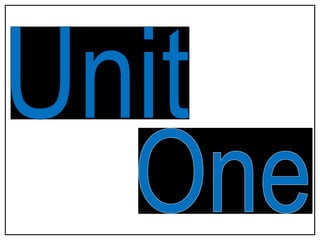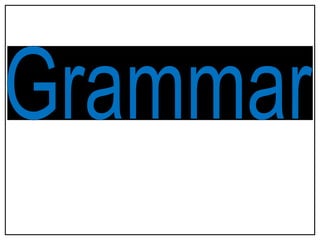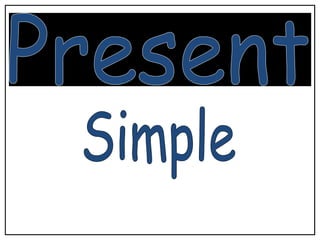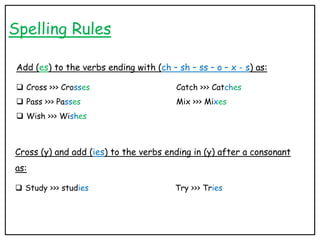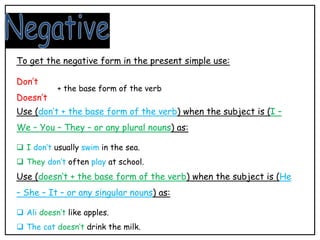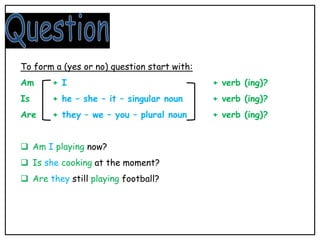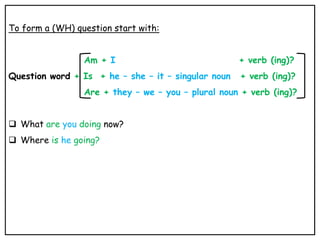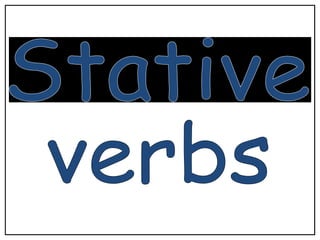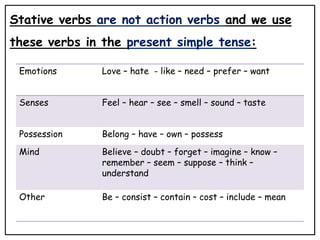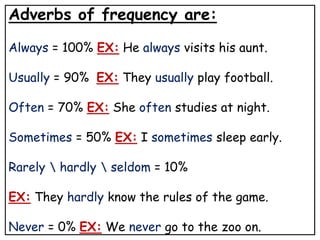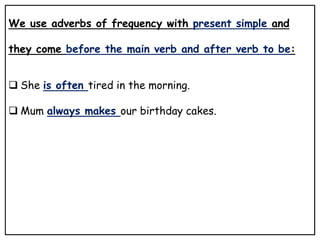The document provides information on using present simple and present continuous tenses in English. It discusses the basic forms of present simple verbs for subjects like "I", "you", plural nouns and singular nouns. It also covers spelling rules, negative forms, questions, and usage with time expressions, habits, facts and permanent states. Present continuous is described including its forms, negative forms and questions. The document also distinguishes between action and stative verbs and provides examples of adverbs of frequency used with these tenses.
